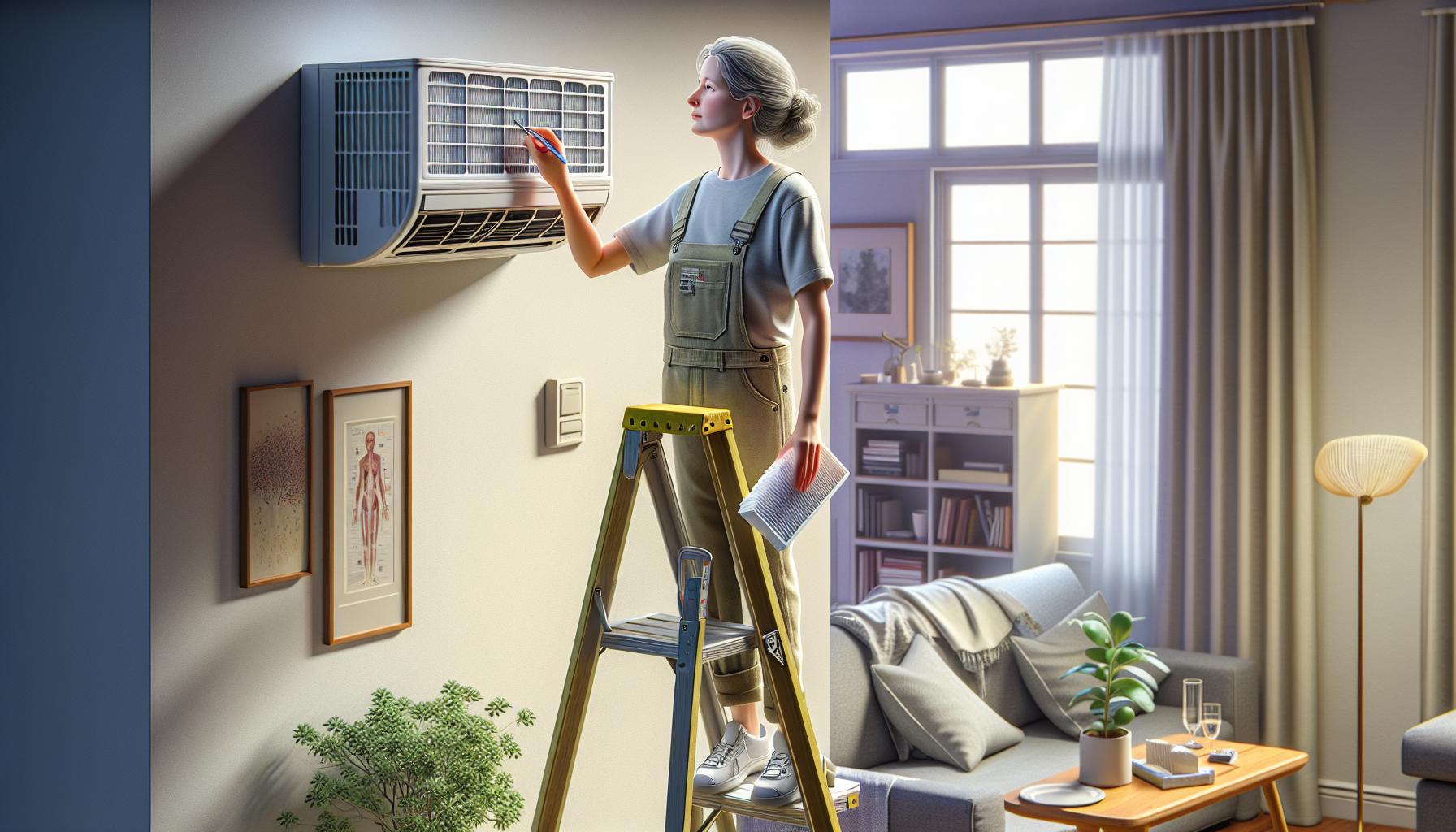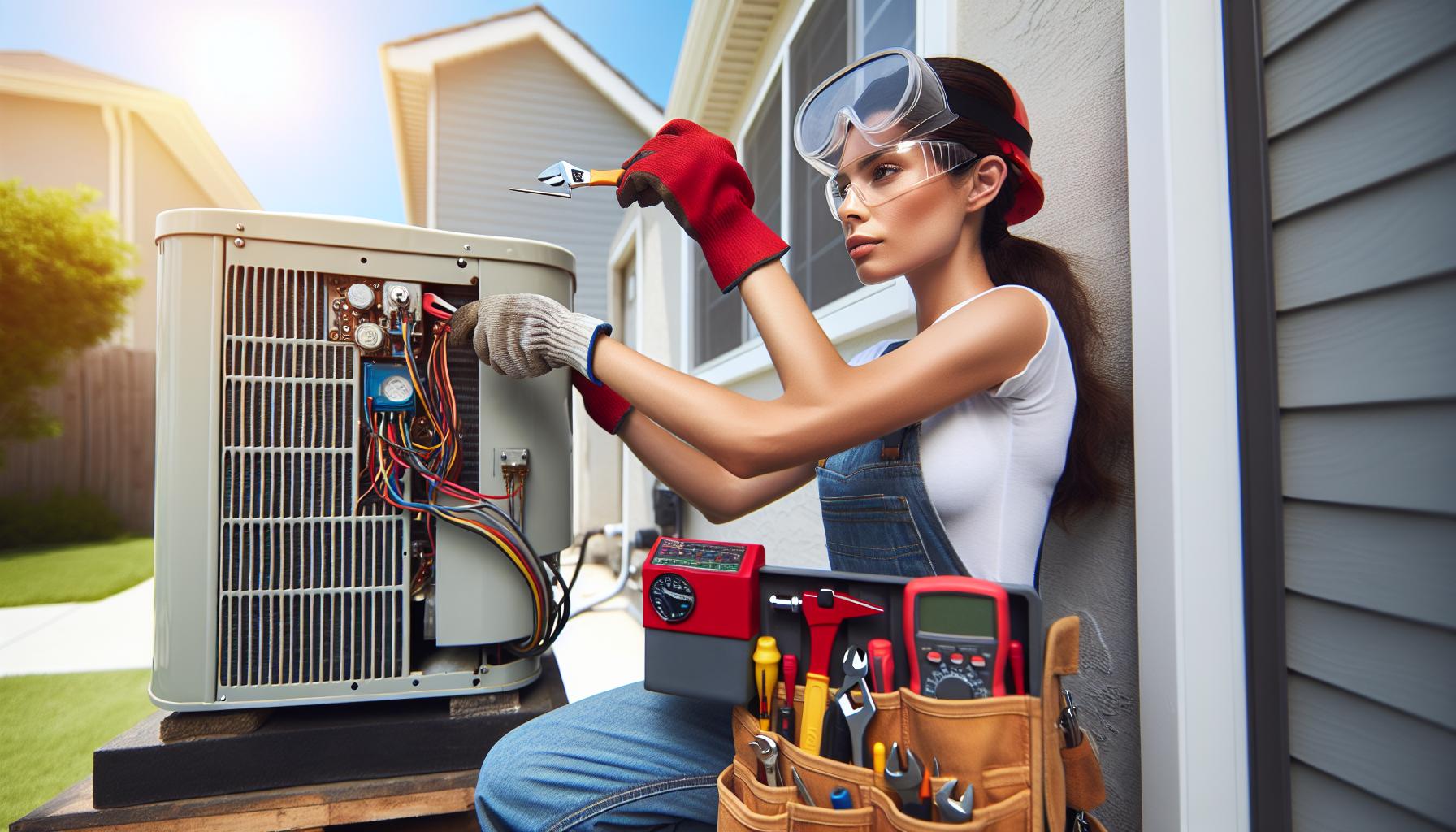Struggling with a sweltering second floor, even though your air conditioner churning away? You’re not alone. Heat naturally rises, and this can leave your upstairs feeling like a sauna, especially in multi-level homes. But don’t sweat it there’s a science behind why your cool haven seems out of reach, and understanding it is the first step to a chill solution.
If your air conditioner isn’t cutting it upstairs, it might not be up to the task of cooling your entire home. It’s crucial to ensure your HVAC system is adequately designed to handle every nook and cranny, from the ground floor to the top. Let’s investigate into why your upstairs retreat isn’t as cool as you’d like and how to turn it into the oasis you deserve.
Common Causes for Upstairs Cooling Issues
Insufficient Airflow
When your upstairs feels like a sauna, odds are you’re dealing with insufficient airflow. Warm air rises, which is a basic principle of thermodynamics, and if the air isn’t being circulated effectively, your upper floors won’t cool down. This issue could stem from a variety of factors such as:
- Blocked vents: Furniture or heavy drapes can obstruct air vents, severely restricting air circulation.
- Dirty filters: Clogged filters reduce the efficiency of your HVAC system, impacting the airflow.
- Leaking ducts: Any cracks or gaps in the ductwork can leak cool air, preventing it from reaching the upstairs rooms.
Improving airflow involves checking and resolving these concerns. Ensure vents are clear, filters are regularly cleaned or replaced, and ductwork is intact and properly sealed. Installing ceiling fans can also promote air circulation, drawing warm air upwards while pushing cool air down where you need it most.
Undersized Air Conditioner
An often overlooked issue is the size of your AC unit. If your air conditioner is undersized, it simply lacks the capacity to cool your entire home efficiently. The correct size of an AC unit is pivotal for optimal performance; if it’s too small, it won’t meet the cooling demands, especially of the upper floors. Consider these points to determine if you have an undersized AC:
- Home expansion: If you’ve added to your home without upgrading your AC, it’s likely insufficient for the increased space.
- Continuous operation: An AC unit that never seems to shut off may be straining to cool a space beyond its capability.
Consulting with an HVAC professional can provide guidance on whether a larger, more powerful air conditioning system is needed to effectively manage the temperature throughout your house.
Poor Insulation
Finally, poor insulation could be the culprit for your second-floor heat woes. Insulation plays a significant role in keeping your house cool by slowing the transfer of heat. An inadequately insulated home suffers from:
- Heat gain: During summer, heat easily penetrates into the upper levels, causing temperatures to soar.
- Energy loss: Cool air escapes through walls, ceilings, and floors, leading to higher energy bills.
To combat this, assess and upgrade your home’s insulation, particularly in the attic and roof areas. Proper insulation not only aids in maintaining a comfortable indoor temperature but also contributes to energy efficiency, cutting down on those excessive cooling bills. Effective insulation materials and professional installation can make a substantial difference in your home’s ability to retain cool air where you need it upstairs.
Solutions for Improving Cooling Upstairs

Cleaning or Replacing Air Filters
An integral part of maintaining your air conditioner’s efficiency is ensuring the air filters are clean. Dirty or clogged air filters restrict airflow, causing your AC to work harder and less efficiently, which can be especially problematic for cooling your upstairs. It’s recommended to replace most disposable air filters every 90 days to keep the air in your home cleaner and your AC running smoothly. By cleaning or replacing the filters, you’ll notice an immediate improvement in airflow and cooling effectiveness.
Balancing Airflow
Correctly balancing the airflow throughout your home can lead to a more evenly distributed temperature. By partially or completely closing the dampers for the first-floor vents, you’ll redirect more cool air upstairs. If DIY solutions like this don’t achieve the desired balance, an HVAC technician can perform a professional balance of your system. This could involve adjusting duct and AC dampers based on airflow and temperature measurements to optimise air conditioning on the second floor.
Utilizing Fans
Fans can be an excellent complement to your air conditioning system. Ceiling fans help circulate air within a room, creating a draft and promoting even cooling. For a more directed approach, register booster fans fit into vent registers and actively pull cool air from the duct system into a room. Most come with adjustable speed settings and smart sensors, augmenting the airflow specifically where it’s needed.
Installing Additional Insulation
Attic insulation plays a pivotal role in controlling the temperature throughout your house. Attics can reach extreme temperatures if left uninsulated, causing heat to radiate into your living spaces. Adding insulation not only helps keep the upstairs cooler but also reduces energy consumption. Over time, this is a cost-effective way to tackle the challenge of a hot second floor, as it minimises solar gain and lessens the burden on your HVAC system.
Closing Off Unused Rooms
A simple yet effective strategy is to close off unused rooms. Shutting the doors and vents in these spaces can prevent cool air from being wasted there. As cool air is redirected to the areas of the home where it s needed most, this method helps maintain a cooler upstairs environment. By confining the airflow to commonly used areas, your air conditioner can operate more efficiently and effectively cool the second floor.
Signs that Your Air Conditioner Needs Professional Attention

Uneven Cooling Throughout the House
You’ve likely noticed that some areas of your home are cooler than others, typically the upstairs rooms resist maintaining the same comfortable temperature as the lower floors. This disparity in cooling is not merely inconvenient, but a sign that your air conditioner might require a professional assessment. Efficient air conditioners should distribute cool air evenly. If yours doesn’t, the issue might be related to aging systems, blocked vents, or something more serious like ductwork decay.
When upstairs rooms resemble a sauna while downstairs areas feel adequately cool, air flow issues are probable. Air duct leaks are a known culprit, leading to loss of air and increased energy bills. Inspecting and repairing these leaks isn t just about comfort; it s also about energy efficiency and cost-savings. ### Strange Noises or Odours
Your air conditioner should run relatively quietly. If you’re hearing banging, whistling, or grinding sounds, there’s likely a mechanical issue that demands immediate attention. These sounds could indicate anything from loose parts to a failing motor. Equally alarming are strange odours that emanate from your AC unit. A musty smell often signals mould or mildew presence within the ductwork, while a burning odour might point to electrical issues. Both scenarios impact air quality and necessitate a professional technician s intervention.
Frequent Breakdowns or Malfunctions
If your air conditioner has become high maintenance, frequently breaking down or not performing at optimal levels, it’s a clear indicator of a system in distress. Components wear out over time, and a unit that constantly requires repairs speaks to a deeper dysfunction, potentially warranting a replacement. Regular breakdowns also disrupt comfort and can lead to costly energy bills.
A professional HVAC inspection can shed light on whether your current difficulties reflect a system nearing the end of its useful life or if targeted repairs can restore functionality. Proactive maintenance might prevent a minor issue from escalating into a major expense. Remember to address these signs promptly, as they can only worsen over time, affecting not just your comfort but also your wallet. A well-functioning air conditioner is vital for ensuring a consistently cool and pleasant home environment, especially during the warm season.
Conclusion
You’ve now got a handle on the key factors that might be preventing your air conditioner from effectively cooling your upstairs. Tackling these issues head-on will help you create a more comfortable and evenly cooled space. Remember to stay vigilant for any signs that suggest your system needs professional care. Taking action early can save you from discomfort and costly repairs down the line. Keep your cool this summer by ensuring your air conditioner is in tip-top shape for those warm days ahead.
Speaking of HVAC systems, you might be interested in HVAC (Heating, Ventilation, and Air Conditioning). Additionally, if you’re curious about the science of how heat rises, check out Convection on Wikipedia. For those interested in optimizing air flow in your home, you may find the article on Duct Flow helpful. And lastly, learn more about the benefits of <a href="https://en.wikipedia.org/wiki/C